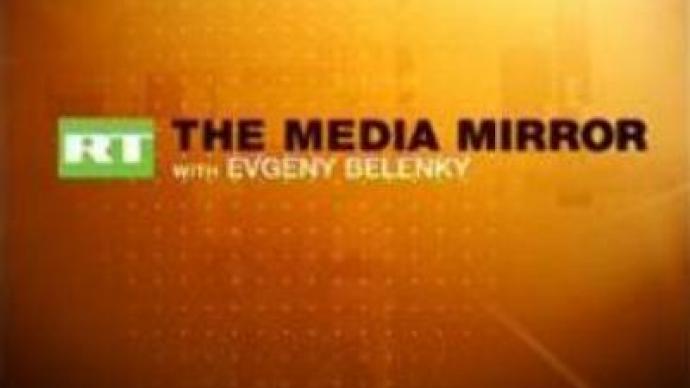Media Mirror - 23.05.07.

Russian newspapers on Wednesday cover relations between Russia and Austria, ahead of the Russian President's visit to the country and react to President Bush' announcement that he has doubts about democracy in Russia.
ROSSIYSKAYA GAZETA publishes an exclusive interview with the Chancellor of Austria, Alfred Husenbauer, who is playing host to President Putin this Wednesday. The Russian President is on a two-day visit to Austria, so the interview mostly covers relations between the two countries.The Austrian Chancellor evaluates the bilateral relations as close and productive and adds that on the agenda of the visit there are such matters as the further development of economic co-operation, an exchange of information on the situations in both countries, and a discussion of Balkan issues. He also stressed that in Austria the majority of the people remember the liberator role of the Soviet Army and that Vienna's own Bronze Soldier is standing firmly in place – in the very centre of the city.KOMMERSANT reacts to Tuesday's announcement by President Bush that he has doubts about democracy in Russia by publishing a detailed report on the meeting of the U.S. President with Secretary General Jaap de Hoop Sheffer of NATO, under the headline “A cold Bush”, a phrase that rhymes in Russian with the expression “A cold Shower”. It was a cold shower to many, as that was the first time ever that Bush expressed his doubts about Russia in such an open way, writes the daily.Gold Stars of Heroes of Russia were awarded recently, among them – the medal given to Colonel Aleksey Botian, for a heroic deed of 62 years ago. Botian, a military intelligence officer at that time, prevented the demolition of the medieval Old Town in Krakow, Poland, which had been planned and prepared by the retreating Nazis. In the photograph from ROSSYISKAYA GAZETA he is receiving his Hero's medal from his Commander-in-Chief, President Vladimir Putin.VREMYA NOVOSTEI mentions Colonel Botian, too, but sheds more light on another page of WW2 history of Russia and Poland: the Katyn massacre in 1940, where over 14 thousand Polish army officers were summarily executed by the NKVD.Recently another hearing in the Moscow Regional Court failed to confirm this event as a case of state-implemented repression of the Stalin era, in spite of the fact that the execution order had been issued by Lavrenti Beria himself. The court decided that as foreign nationals, the polish officers could not be considered victims of the repressions.Jacov Etinger, a historian specialising in the political repressions in Russia and a victim himself, is surprised:“There were lots of foreign nationals among the victims of Stalin's repressions anyway, even without Katyn”.“This outrageous court decision cannot fail to badly effect the relations between Russia and Poland, quite shaky even without it.”Want to live longer? Stop whatever you are doing and go into science, writes NEZAVISIMAYA GAZETA. A group of researchers came to a conclusion that academics on average live 13 to 20 years longer than people of other occupations. Absorbed in their work, scientists are less vulnerable to everyday stress. Adventures of the mind are, therefore, less life-shortening than adventures of any other kind. The analysts worked with data from every country in the world where scientific research is done.
You can share this story on social media:












